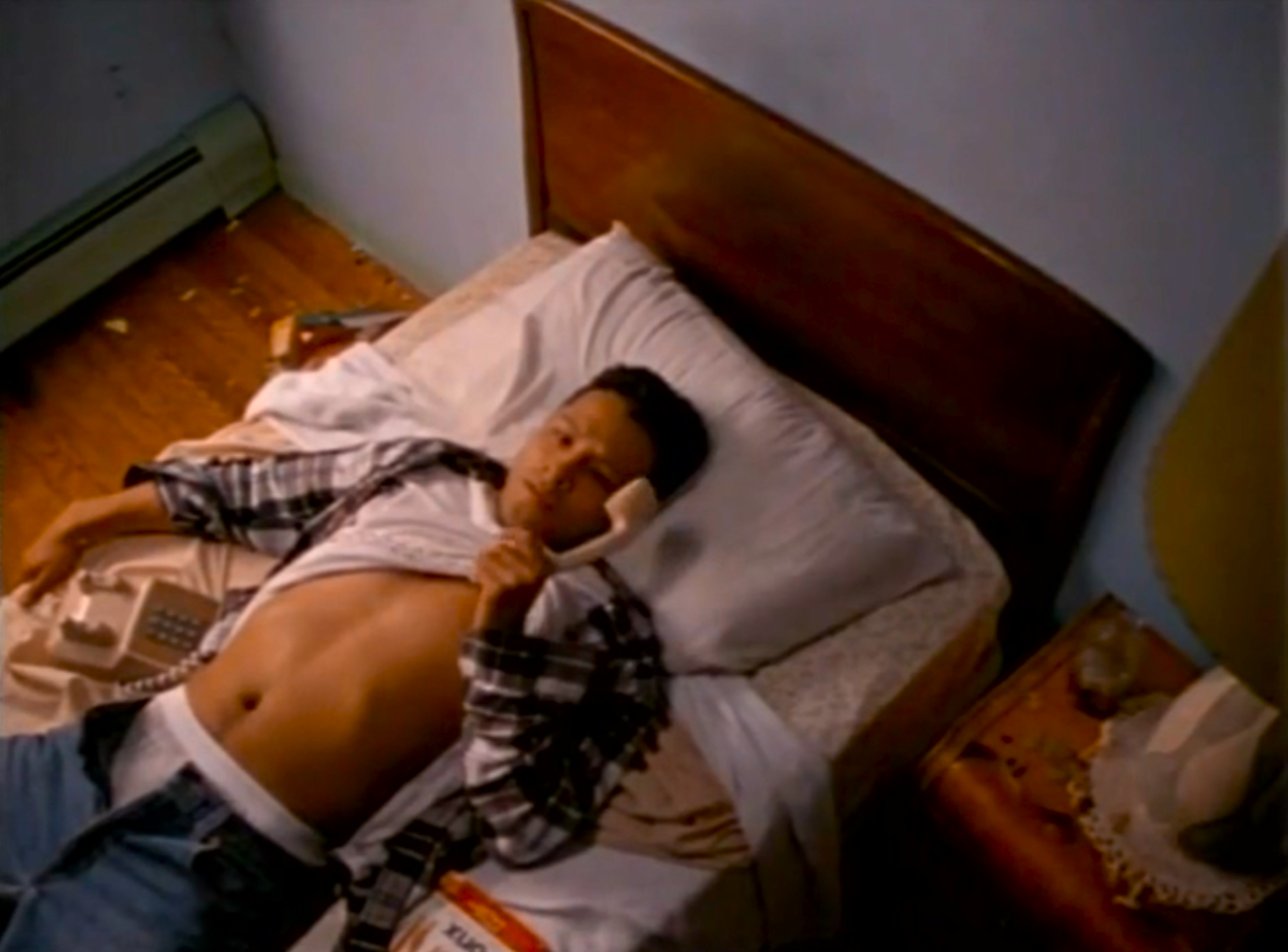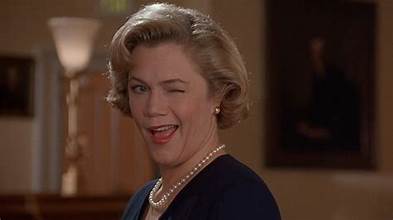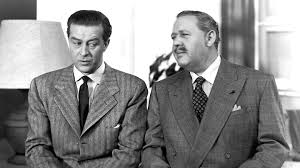THE PERFECT
HOUSEWIFE
John Waters
(screenwriter and director) Serial Mom / 1994
This black satirical comedy is, in some respects
also a true horror film in the sense that this every day, perfect mom, Beverly
Sutphin (Kathleen Turner) surrounded by her already somewhat maladjusted family
Misty (Ricki Lake), Chip (Matthew Lillard), and her husband dentist Eugene (Sam
Waterston), is on the verge of the perfection of Towson, Maryland suburban
life, but on the side functions as a serial killer, knocking off the people who
get under her skin. The first of these, after a series of pornographic calls
and notes to neighbor Dottie Hinkle (Mink Stole), is the high school math
teacher Mr. Stubbins, after he condemns Chip's obsession with horror films at a
PTA meeting.

Through a complete sense of guilelessness
and duplicity, Beverly not only keeps the detectives Pike (Scott Wesley Morgan)
and Gracey (Walt MacPherson), somewhat off her trail, but upon discovering that
the young Carl, supposedly her daughter Misty’s boyfriend, is also dating a
blond bimbo, kills him off in the men’s room with a fire poker just purchased
by her neighbor.
Eugene himself becomes so curious about
the complex behavior of his wife that he investigates her nightly reading
material, supposedly about birds, only to discover that Beverly had been
communicating directly with the serial killer of the late 1970s, Ted Bundy.
In the midst of one meal, Beverly simply
leaves, leading the family to suspect that she is out to get Chip’s friend
Scotty, who has mentioned to his friends that he finds Beverly a suspicious
figure.
In fact, it is his parents Ralph and Betty
Sterner, she is after, mostly because of Ralph’s insistence for a dental
appointment with Eugene on the morning she and her husband were to have gone
bird-watching.
She
chooses a scissors to kill Betty and pushes an air conditioner upon the head of
Ralph when he has presumed he has escaped.
The
other family members rushes to the constantly masturbating Scotty to find him
midst arousal, but safe nonetheless.
 Police follow the Sutphins to church that
Sunday as Beverly is named as the prime suspect in the Sterners' murders. The
service abruptly ends when everyone flees in panic after Beverly sneezes; in
the confusion, Beverly escapes as police attempt to arrest her, she hiding in
the video store in which Chip in employed.
Police follow the Sutphins to church that
Sunday as Beverly is named as the prime suspect in the Sterners' murders. The
service abruptly ends when everyone flees in panic after Beverly sneezes; in
the confusion, Beverly escapes as police attempt to arrest her, she hiding in
the video store in which Chip in employed.
When a
customer, who has refused to rewind a tape, refuses to pay the dollar fee and
berates Beverly’s son, Beverly follows and fatally hits her over the head with
a leg of lamb (a reference to a famous Alfred Hitchcock Presents episode).
Scotty witnesses the act, a bit
unbelievably, and Beverly is on the chase again, following him into a heavy
metal bar featuring a lesbian trio. Eventually she joins him on the stage where
she immolates him.
Re-arrested, we have now entered
director’s Waters canny realization the such horrific deeds lead not to
shunning but to celebrity.
No one in this film behaves as if those
citizens killed meant anything (for the most part they are also despicable
people), and her son and daughter are not involved in selling memorabilia, and
other objects, as the crowd files into the October courthouse.
The
lawyer plans to plead insanity, but Beverly quickly fires him and defends
herself, with her guiles and lies—with which through the film she has
revealed—convincing the jury members that she is utterly innocent.
A
movie starring Suzanne Somers is already in her plans, and Somers appears as
another distraction to any truth. Yet all this while, Beverly has been furious
over the fact that one jury member, #8 (Patty Hearst) is wearing white shoes
after labor day, and while she uncomfortably poses with Somers, she sneaks off
to do in the juror. The juror’s body is uncovered in the midst of photographs,
and Beverly, who seems uncomfortable with Somers, gives her a knowing link:
perhaps she is next. Yet it is also hinted that Beverly is back in police
custody.
Los
Angeles, June 1, 2025
Reprinted from My
Queer blog (June 2025).












